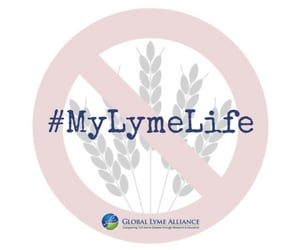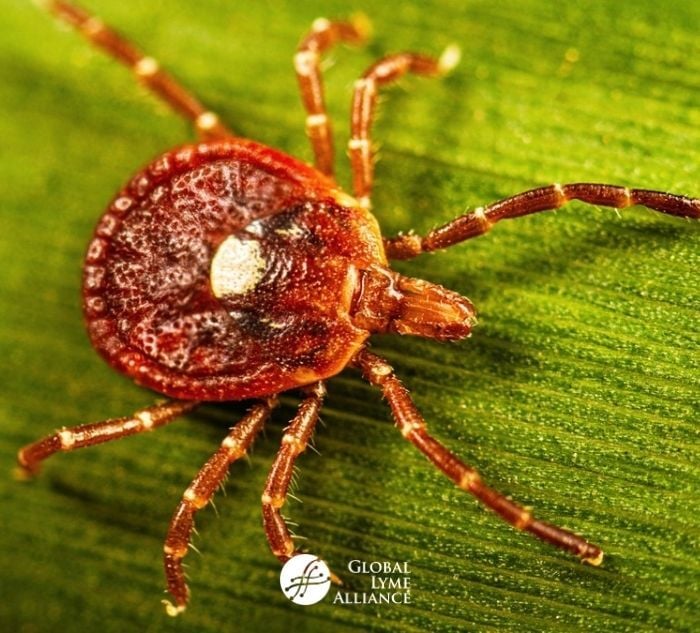
by Kerry Heckman
#MyLymeLife
For some patients with chronic illness, including Lyme disease, a restricted diet can improve their lives. So why the ridicule?
The jokes are everywhere. There is a popular meme that reads, “It’s gluten-free, sugar-free, dairy-free, soy-free, egg-free, & fat-free. They call it ‘water’ and you can buy it at Whole Foods.” Implying that the only thing someone on a restricted diet can have is water and only shop at grocery stores with a reputation of being pretentious. (Not that anyone on a gluten-free, sugar-free, dairy-free, soy-free and egg-free diet would ever eat anything that was fat-free, but that’s beyond the point).
I’m on a restricted diet and I’m often embarrassed to talk about it. Why am I embarrassed? Because there is a general consensus that special diets are a fad and only obnoxious people eat that way.
Why do I eat the way I do? By the time I was 34, I had already been diagnosed with two autoimmune disorders, later to be correctly diagnosed as chronic Lyme disease. I was in so much pain I couldn’t turn over in my bed without screaming. The doctors found so much inflammation in my spine and muscles in my back I was hospitalized for five days and underwent two biopsies. Conventional doctors offered no viable solutions.
An integrative medicine doctor encouraged me to try something called the autoimmune protocol diet, which is an extremely restrictive, low inflammation diet with no grains, no dairy, no sugar, etc. After only two weeks on the diet my back pain subsided and I was finally able to sleep. Eventually, the diet became too restrictive for me, so I modified it to meet my needs. Basically, I avoid processed foods, gluten, dairy and sugar. I had to give up a lot of the foods I love, but it changed my pain level from a steady eight to an intermittent two. When it came down to living in constant pain or giving up gluten, I had to choose the latter.
Nevertheless, I still get rolled eyes and laughter when I discuss my diet, even from people who know I’m sick. To be honest, before I got sick I probably would’ve reacted the same way. What people may not understand is that we don’t want to eat this way, we have to eat this way. We love gluten. Gluten makes doughnuts doughy, bread spongy, and pasta unsticky. It was next to impossible to give it up, and I still miss it every time I pass a bakery or pizza place.
The harsh reality is there has been an upsurge in people diagnosed with autoimmune and chronic diseases. You probably know someone with one of these diseases. Do you remember knowing so many people with such diseases the 1980’s or even the 1990’s? Probably not. I know I didn’t. Autoimmune disorders and chronic immune system dysfunction numbers are skyrocketing.
Integrative and functional medicine practitioners believe these illnesses are caused in part by the standard American diet. If people better understood the link between of certain foods and inflammation, they would realize it’s no laughing matter. We need a wake up call that our immune systems cannot handle all these inflammatory foods. For some patients with chronic illness changing their diet can save their lives. For a good example, read about Dr. Terry Wahl’s battle with MS and how she got her life back when she changed her diet.
Consider approaching the issue from a place of compassion. What if you had to give up your favorite foods? What if one piece of birthday cake made you ache for days? What if you had to stop going to all your favorite restaurants? What if you couldn’t have a glass of wine on a Friday night?
I understand restrictive diets are challenging to accommodate in social situations. It’s why many people on these diets stop going out entirely, leading them to social isolation and even depression. They are forced to choose between friendships and unrelenting symptoms.
In these situations the host can offer to dine at their own house or choose an activity that doesn’t involve food. As the demand for healthy options keeps growing, I am constantly finding new restaurants that fit my dietary restrictions, so maybe ask your guest where they are able to dine.
There are a few areas of concern one should be conscious of when discussing dietary restrictions. One is that it is very expensive and time consuming to eat a low-inflammation diet; therefore, people with limited resources might struggle to maintain it. A second concern is that some people don’t have dramatic results from the diet, which can be disheartening. And finally, some people take restricted diets to the extreme so it can itself become an eating disorder.
Everyone deserves to eat what they want without being put down. We have to stop mocking people who try alternative ways feel better. There are people who don’t have chronic illness who follow a special diet and the reasons are still valid—such as losing weight, gaining energy, and feeling better about themselves. Someday not so far in the future, no one will be on a restricted diet, because everyone will be.
I love lighthearted fun and joking around, but it’s time to take this one off the table.
 Opinions expressed by contributors are their own.
Opinions expressed by contributors are their own.
Kerry J. Heckman authors the wellness and lifestyle blog Body Mind Lyme. Kerry was [finally] diagnosed with chronic Lyme disease in 2016, her journey with invisible illness began over 10 years prior.

GLA
Admin at GLA






